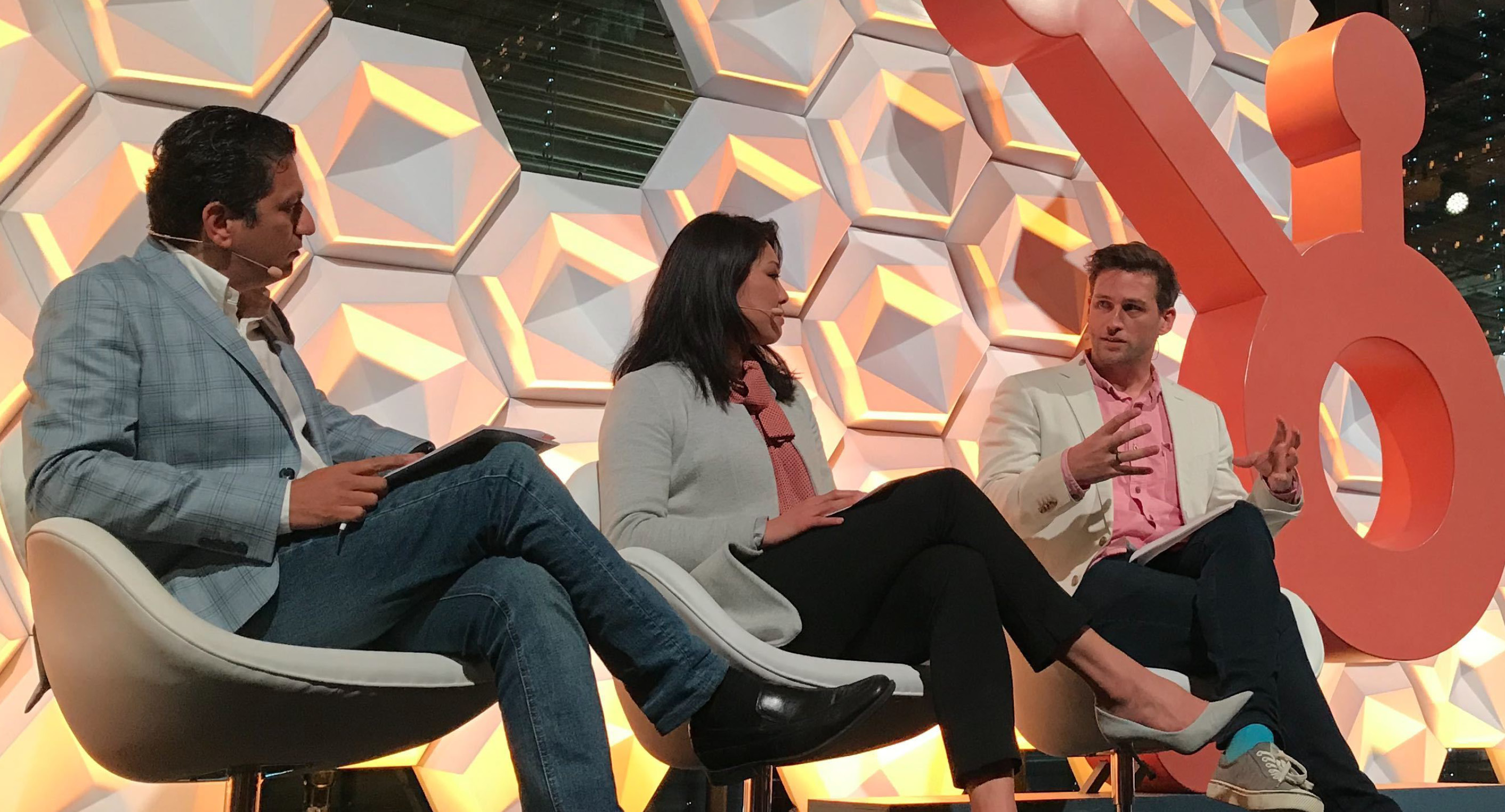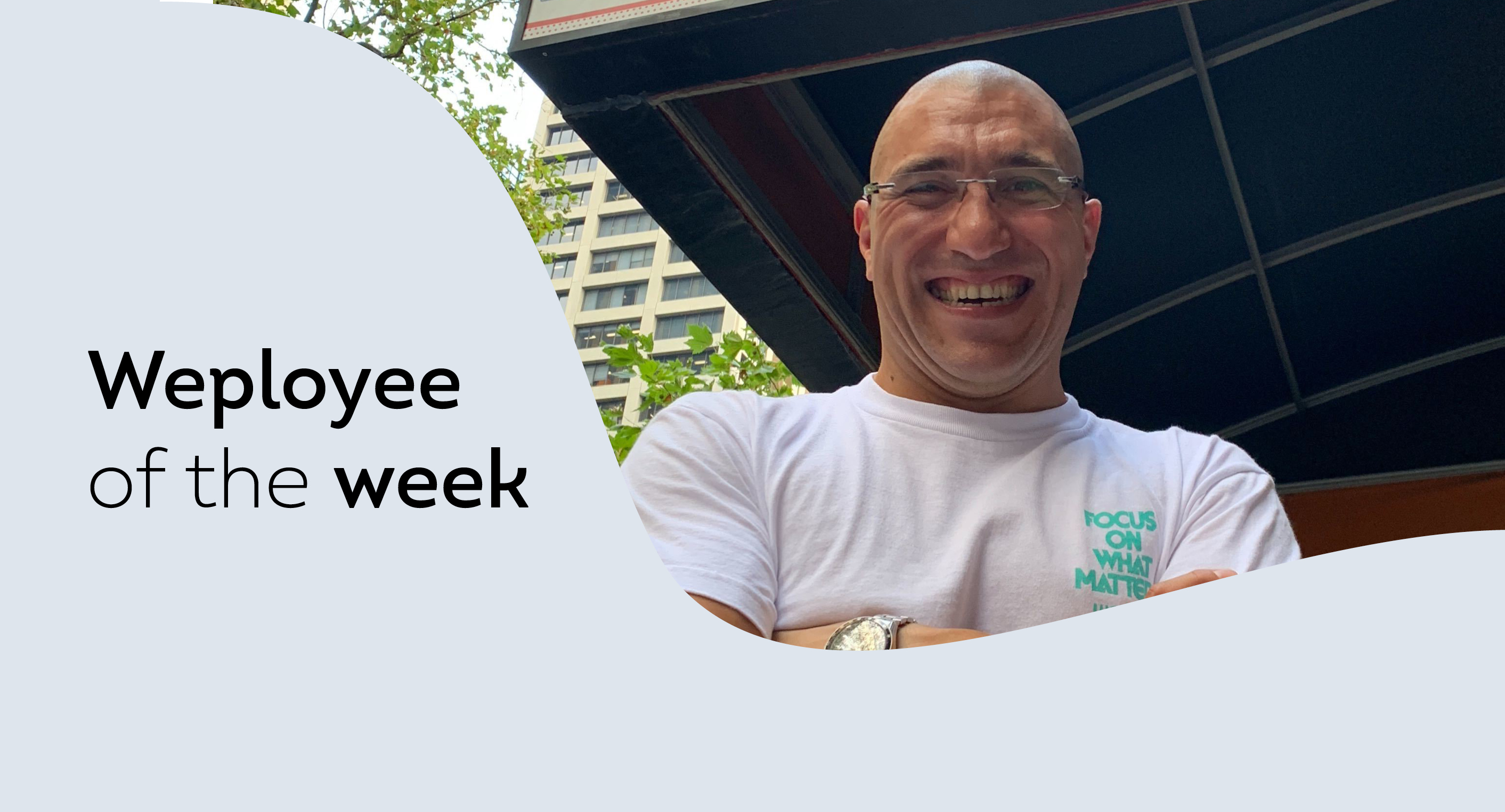Three Ways Technology will Affect the Future of Work

Sitting on the panel at the Hubspot GROW event, I was posed a question that made me stop and think...
“How will technology impact the future of work?”
It took me a little by surprise as the topic of the panel was 'Company Culture'. But thinking it through, as technology and the digitisation of work increases, this will definitely impact workplace culture and employee engagement. So I thought I would expand upon the answer I gave on the day, looking at the impact in the short term, medium, and long-term.
1. Short Term effects- Focus on Continuous Learning
In the short term, automation will continue to change the scope of many roles. Although AI is still a way off from the general intelligence needed to replace knowledge workers, that doesn’t mean many of the repetitive tasks can’t and will be automated.
If you look at any tech landscape, whether HR, Marketing, Sales etc, there are so many vendors that are automating tasks that were once essential, but monotonous. The promise of these technologies is reduced human error, alongside increased productivity and employee engagement as skilled employees are spending less time on menial/repetitive tasks.
So what to do with this extra time? Right now the research shows we’re not working less so I’m going to be optimistic and say it's going into increasing the scope of jobs, and adding more value to the customer.
A salesperson that is spending less time organising meetings and inputting data into the CRM can now focus more time on engaging with their prospects and customers, better understanding their motivations. HR will have access to data they’ve only dreamed of, allowing them to use these insights to innovate their approaches - such as increasing employee experience or pipeline valuable talent.
As roles change, so demand for new hard and soft skills increases. The most efficient way to meet this challenge is with ongoing training and hiring new talent that exhibits a growth mindset. With that in mind, I expect companies that are really dedicated on up-skilling and training their workforce will have a significant competitive advantage.
2. Medium term - Decentralise Decision-Making
Looking ahead to the medium term. The increased complexity and uncertainty that will develop alongside technology advancements will overcome the capability improvements through training alone.
At the moment, there is pressure to create interdisciplinary teams that can work cross-functionally to solve complex challenges. This is not limited to internal teams though - I expect to see this extend in order to involve customers too. When the end user/customer is recognised as a key team member, even greater control over the means of production and customisation is possible.
Traditional working structures are not suited to this kind of work. Decision making sits at the top with the power diluted the further down the ladder you travel. Instead, I predict a shift to a more bottom up approach to decision making and innovation; Flatter hierarchies and processes built to increase communication and transparency between teams with different skill sets and objectives.
We already see agile methodologies being utilised in departments other than engineering. Marketing for example is able to take a lot from the “build, test and learn” process that is part of agile and this will be expanded out beyond functional silos in the medium term.
The main point of contention for many executives who pay lip service to agile, is that they rarely want to decentralise decision making. But this is essential if they are to realise the benefits of agile. If you or your manager falls into this category I’d suggest this great book Plain Talk: Lessons from a Business Maverick by Ken Iverson who led Nucor through an unprecedented reign of success and puts a lot of the success down to decentralisation (here’s a good overview of the main points).
3. Long term - Total Talent Management
Going further ahead to the long term, the crystal ball gets hazier but let’s just progress the principles discussed so far. Working in more agile and interdisciplinary teams, roles will need to become more specialised.
But what happens when a good portion of the workforce is now both specialised, and highly skilled at working cross-functionally? Permanent work arrangements may not provide maximum value for employees and employers. This, in turn will see a rise in the use of Contingent and freelance labour as talent is deployed to meet specific challenges, as and when required.
The extent of which the Future Workforce will become contingent is up for debate - in a recent Accenture report, it is predicted that by 2026 there would be a Fortune 2000 company with no permanent employers outside of the C-Suite.
Seems crazy now, but whatever the scope, the data backs up the increasing use of contingent workers and when this is the new normal, much of how we approach accessing, managing and off-boarding talent will change. We’ll see an increase in freelance and contract talent pool technologies. Workforce planning and management tools will have to address total talent management rather than just the permanent workforce.
I also think we will look to better understand how to maximise team efficiency. Team dynamics can disrupt even the best performers. For the best outcomes there must be a balance of do-er’s, thinkers, relationship makers and excitement builders. So when looking at talent acquisition, whether contingent or otherwise, I expect to see project teams assessed not just on the basis of their individual skills but also with a view to balancing soft skills to maximise the output of the team.
This is such an interesting topic and there will be many more elements that will impact the future of work. I'm always interested in hearing others' perspectives on how technology may impact the future of work, get involved in the conversation and share your thoughts with us over @Weployapp on Facebook, LinkedIn and Twitter.
To learn more about how Weploy is enabling companies like Allianz, Mercedes and VicSuper to embed agility into their workforces, book in for a callback here -https://www.weployapp.com/weployer/book-demo

Education: Year 12, Cert 4 commercial cookery, Cert 4 security operations

Adi is an experienced Business Specialist with demonstrated skills in Analysis, Market Research, Data Management, Customer Relations and Business Strategy. A respectful, diligent and friendly business professional, we even hijacked some of Adi's skills for ourselves on a project for our Sydney talent team! Adi is currently part way through his PhD in Economics at Macquarie University, but he found time between studying, writing, sketching and making music, to chat with us about how he has found the Weploy app.

What was your first job?
Streamline your hiring
Business support staff with no hidden fees. Start hiring anytime.